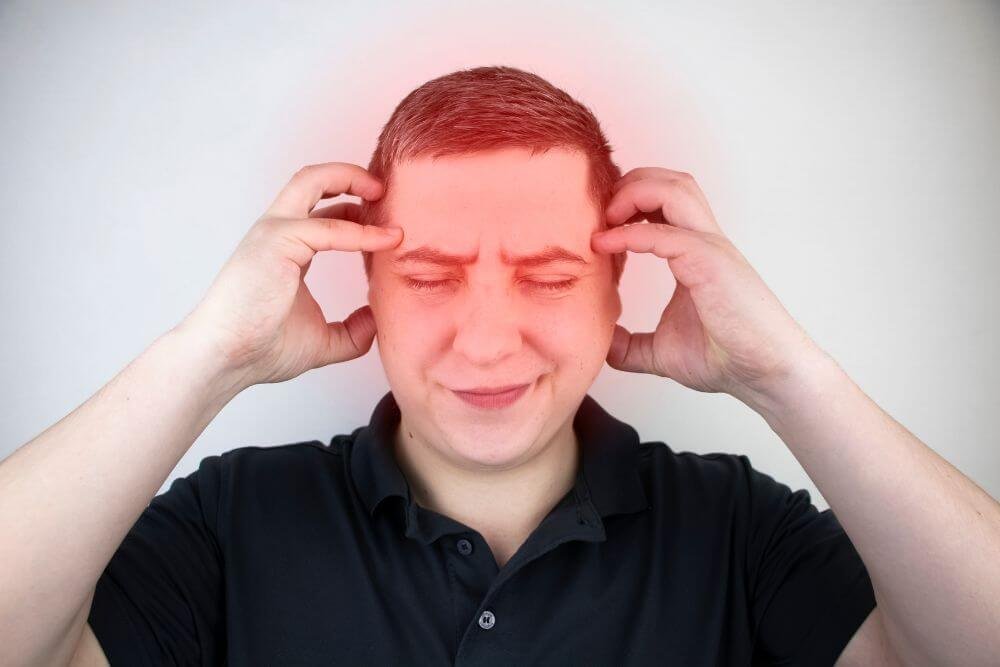
What Are the Common Symptoms of Migraine?
Millions of people worldwide experience a migraine neurological disorder. migraine presents with severe headaches, severely disrupts daily life, and often confines patients to their beds for hours or even days. Understanding the common symptoms of migraine is critical to proper identification, therapy, and management.
This article will help analyze the key signs defining a migraine, whether you are trying to learn more about it or suspect you might be going through it.
What is a Migraine?
Recurring, throbbing pain, often only on one side of the head (although sometimes on both), is what primarily defines a migraine-type headache illness. Other symptoms include nausea, vision problems, and sensitivity to light, or sound. An ordinary headache might be annoying, but a migraine can be disabling, with people unable to concentrate or accomplish even simple, everyday tasks.
Most Common Symptoms of Migraine
The severity and frequency of the symptoms of a migraine are pretty common. Below are the most common signs that you are suffering from a migraine:
1. Headache
The most exact description of a severe headache is a severe type of pain affecting the head. The nature of pain can be described as throbbing or pulsating, which usually affects one-half of the head in most cases. However, at times, both halves are affected. The discomfort typically lasts for a few hours or days with variable severity.
2. Aura
Not all migraines have an aura, but an aura is a set of sensory abnormalities that appear before the headache phase of a migraine. It can occur for five minutes to an hour at a time. Visual abnormalities such as flashing lights, blind areas, or zigzag patterns are frequently associated with auras. Additionally, some persons have sensory problems such as tingling on their face or hands.
3. Sensitivity to Light and Sound
A common side effect of migraines is increased sensitivity to light and sound (photophobia and phonophobia, respectively). During a migraine attack, bright lights, loud noises, or even normal background sounds can become intolerable, causing many to withdraw to a quiet, dark area until the incident ends.
4. Nausea and Vomiting
Nausea and vomiting are common accompaniments of a migraine attack and can exacerbate the undesirable effects of the disorder. Milder types of nausea in some patients become recurrent severe vomiting in others.
5. Fatigue and Exhaustion
Both at the time and after an attack, migraine sufferers may feel wasted and drained. Even before the migraine gets underway, individuals often feel seriously tired, and this fatigue is present to some degree for a period after the episode.
6. Neck Stiffness
People with migraines often report stiff necks and aches. This symptom can occur before or during the migraine attack, increasing the pain and tension felt in the course of the attack.
7. Blurred Vision
Some migraine patients experience double or blurry vision. Like the aura, it typically makes such simple tasks more difficult during an attack.
Less Common Symptoms of Migraine
These are the most common symptoms of migraine, though sometimes migraines can start in a less common form:
1. Speech Problems
Aphasia is a condition in which some people have difficulty speaking or finding the right words at a time of migraine attack. This, however, is disturbing and usually resolves when the migraine subsides.
2. Dizziness and Vertigo
Another common side effect of migraines is dizziness or the feeling that the room is spinning. It is indeed somewhat disconcerting to stand or move about with this symptom without feeling unbalanced.
3. Tingling or Numbness
Some migraine sufferers report a tingling or numbness sensation in the arms, hands, face, or tongue that usually signals an impending migraine attack and often occurs in the aura phase.
Read Also:
- How Do I Know If I Have A Migraine Or A Regular Headache?
- What Are The Main Causes Of Frequent Headaches?
Triggers for Migraines
Some of the common migraine triggers include stress and certain foods (such as processed meats, booze, and chocolate), hormonal changes in women, glaring lights, pungent smells, and sleep patterns. Migraines can be controlled and experienced less often when potential triggers are avoided and recognized.
How Long Do Migraine Symptoms Last?
The duration of a migraine attack varies from 4 to 72 hours, based on the person experiencing it and its severity. The prodrome, aura, attack, and postdrome phases of a migraine can prolong the whole experience and cause symptoms to persist for many days in certain individuals.
When to See a Doctor?
Migraines are common, but some symptoms might necessitate an emergency visit. If the headache is sudden and very severe a term called “thunderclap headache”-seek doctor’s help.
- Dizziness, heat, or numbness occur with the headache.
- Your sight leaves you.
- You’re getting migraines more often than ever before.
Consult a doctor or neurologist if you are experiencing any of these symptoms to rule out more serious illnesses.
Experiencing severe migraines?
Consult Dr. Nitisha Goyal, the best migraine specialist in Gurgaon, for expert diagnosis and personalized treatment. Book your appointment today and regain control of your life!
Frequently Asked Questions
Q. Can a migraine cause permanent damage?
Rarely, but if it does occur, then complications of symptoms of stroke can be experienced.
Q. Can children get migraine headaches?
Yes, they can too. The symptoms of a child’s migraine can be a bit different: They may complain of their abdomen or it hurts to bend their head forward.
Q. Are the migraine headaches hereditary?
Yes, they are. Most migraine sufferers say they have a family history of the disorder.
Q. What treatment is administered to a person with migraine?
Treatment varies from lifestyle changes, medication, and in a few cases, preventive treatments such as dietary alteration and stress management.
Conclusion
The common symptoms of migraine are complicated and differ widely from person to person. Knowing the typical symptoms, which include aura, light sensitivity, nausea, and head pain, might make it easier for people to recognize migraines and seek the right care. Creating a customized management plan with a healthcare specialist can greatly enhance your quality of life if you suffer from migraines regularly.

